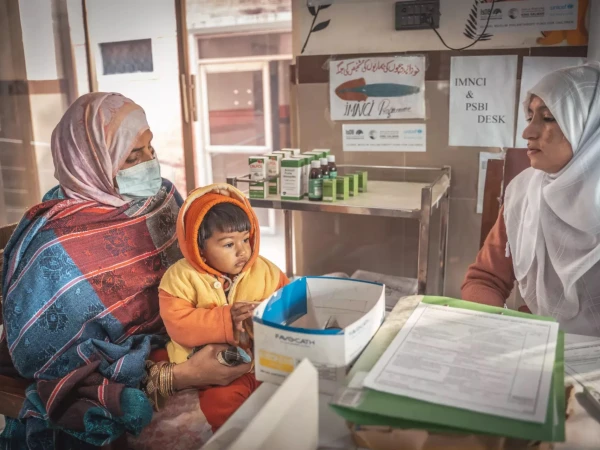Due to dry weather, coolness at night and heat during the day in Karachi, the number of patients suffering from asthma, allergies, fever and respiratory diseases has started increasing rapidly.
According to medical experts, dusty air, garbage burning and poor sanitation arrangements have further worsened the situation. A significant increase in asthma, fever, malaria and dengue patients is being seen in government and private hospitals of the city.
In this regard, according to Dr. Liaqat Ali, Additional MS (OPD Incharge) of Civil Hospital Karachi and pediatrician, the number of children suffering from asthma and allergies has increased in the month of October. Young children make a whistling sound while breathing, which is called wheezing child, which is a sign of respiratory distress.
He said that the number of patients in the hospital’s OPD has increased from one hundred to one hundred and forty daily. Despite the end of the monsoon, dengue and malaria cases are still being reported in large numbers. Special wards have been set up in the hospital on the instructions of the health department. Dengue is currently the most common disease, while chikungunya cases are relatively rare.
He said that both dengue and chikungunya are spread by the same mosquito and their symptoms are similar. Chikungunya causes severe joint pain and swelling, while dengue includes fever, back pain, headache and vomiting. If the patient has a high fever, it is necessary to get tested for dengue and malaria immediately, because in dengue, platelets suddenly decrease, which can worsen the patient’s condition.
Dr. Liaquat advised that dengue patients should drink more water and use painkillers only as needed, while continuous monitoring of platelets is necessary. According to him, if the platelets are less than one hundred thousand, caution should be taken and the test should be repeated every six hours at a level of thirty to forty thousand.
He added that the first wave of bronchiolitis in children under six months of age comes during this season, in which even seemingly healthy and obese children can suddenly go on a ventilator due to respiratory distress. Asthma and COPD patients also need to be careful.
Dr. Liaquat directed the citizens to use masks, not take children out unnecessarily, not use mosquito repellents in rooms and keep birds like pigeons and parrots away from children. He said that this year, compared to last year, there is definitely an increase in patients, but fortunately, no deaths have been reported so far.
